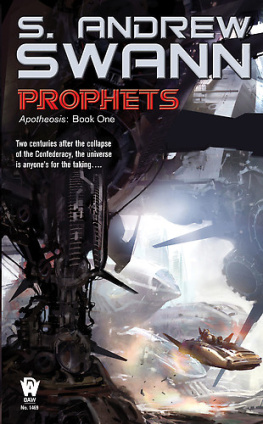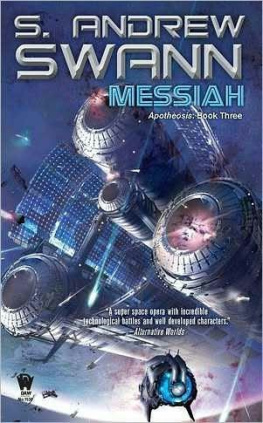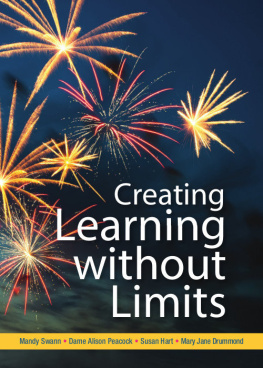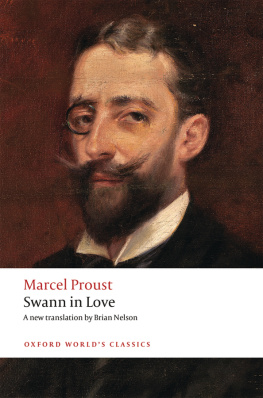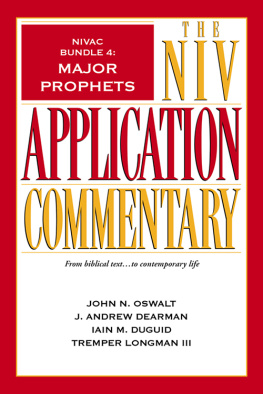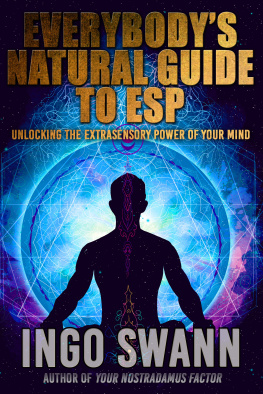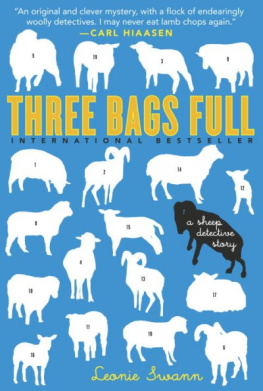APPENDIX
Alphabetical Listing of Sources
Note: Dates are Terrestrial standard. Where the year is debatable due to interstellar travel, the Earth equivalent is used with an asterisk. Incomplete or uncertain biographical information is indicated by a question mark.
Aeschylus (525 Bce-456 Bce) Greek playwright.
Amiel, Henri Frdric (1821-1881) Swiss philosopher, poet, and critic.
Bacon, Francis (1561-1626) English philosopher, statesman, and essayist.
Bakunin, Mikhail A. (1814-1876), Russian political philosopher.
Balzac, Honor de (1799-1850) French novelist and playwright.
Buddha, Siddhartha Gautama (563 Bce-483 Bce) Indian spiritual leader.
Burke, Edmund (1729-1797) British statesman and philosopher.
Celine, Robert (1923-1996) American lawyer and anarchist.
Charles the Bold (1433-1477) duke of Burgundy.
Cheviot, Jean Honor (2065-2128) United Nations secretary general.
Clausewitz, Karl von (1780-1831) Prussian military philosopher.
Darwin, Charles (1809-1882) English naturalist and author.
Diderot, Denis (1713-1784) French philosopher.
Erasmus, Desiderius (1465-1536) Dutch humanist and theologian.
Frederick II, the Great (1712-1786) Prussian monarch.
Galiani, August Benito (2019-*2105) European spaceship commander.
Goethe, Johann Wolfgang von (1749-1832) German playwright.
Harper, Sylvia (2008-2081) American civil rights activist and president.
Hazlitt, William (1778-1830) English essayist.
Holmes, Oliver Wendell Jr. (1841-1935) American jurist.
Horace (65 Bce-8 Bce) Greek poet.
Johnson, Samuel (1709-1784) English lexicographer and essayist.
Joubert, Joseph (1754-1824) French essayist.
Kalecsky, Boris (2103-2200) Terran Council president.
La Rochefoucauld, Franois de (1613-1680) French author.
Lincoln, Abraham (1809-1865) American president.
Marx, Karl (1818-1883) German political philosopher.
Mill, John Stuart (1806-1873) British philosopher, economist, and civil servant.
Moltke, Helmuth von (1800-1891) Prussian general.
Nietzsche, Friedrich (1844-1900) German philosopher.
Olmanov, Dimitri (2190-2350) Chairman of the Terran Executive Command.
Osler, Sir William (1849-1919) Canadian physician.
Plato (ca. 427 Bce-ca. 347 Bce) Greek philosopher.
Rajasthan, Datia (?-2042), American civil rights activist and political leader.
Shane, Marbury (2044-*2074) Occisian colonist and soldier.
Socrates (470 Bce-390 Bce) Greek philosopher.
Still, John (1543-1608) English bishop.
Tacitus, Cornelius (ca. 55-120), Roman historian.
Tocqueville, Alexis de (1805-1859) French writer and statesman.
Virgil (70 Bce-19 Bce) Roman poet.
Voltaire (1694-1778) French writer.
Whitman, Walt (1819-1892) American poet, essayist, and journalist.
CHAPTER ONE
The Music of the Spheres
Blaming Fate, God, or Destiny is an admission that you dont have a clue whats going on.
The Cynics Book of Wisdom
The only good is knowledge and the only evil is ignorance.
SOCRATES (470-390 Bce)
Date: 2502.12.09 (Standard) 5.48 ly from Xi Virginis
The egg moves at half light speed through the vacuum, its surface a deep blackness absorbing every stray photon, emitting nothing. Particles with small massesfrom stray protons up to grains of interstellar dustslide around it, nanometers from its surface, following the ovoid perimeter until they find their original track on the opposite side, where they resume their motion as if the egg had not crossed their path. The only sign that something exists beneath its event-horizon skin is the resonance in the fabric of space-time as it ripples gravity in its wake.
The egg has traveled for over two centuries, 228.326 years standard to be exact. Viewed from the perspective of those who built it, its journey has barely begun. The Protean outpost on the lawless planet Bakunin, the origin of the egg, had secluded itself from the persecution of the rest of human civilization and looked far beyond the limits of that civilization to propagate itself. The eggs destination is removed from its builders by thousands of light-years in space, and a million years in time. Packed within it is the combined resources and knowledge of the entire Protean civilization.
Within the egg sleep the minds of a quarter million people.
One mind is awake. An artificial mind devoid of boredom or emotion. A mind that can observe the eggs travels over the course of an aeon and not go insane.
A mind that sees with an almost omniscient eye.
The egg itself is a collector of every scrap of radiant energy; it touches every ripple in the fabric of space, hears the twist of momentum of the particles slipping close to its skin, and smells the quantum foam of virtual particles that break across it as it moves through the vacuum. The mind is as aware as any sentient being can possibly be.
For all that, the minds job is simple. Watch, and ensure that the egg does not move through anything that could damage it or its contents. That is the directive, the minds sole reason for being.
The mind cannot feel pride, but it knows that it is good at its job. It knows in a concrete fashion that it has saved the egg from danger 1,568 times in the past 200 years standard.
Dust will slide by the dent the egg makes in the universe around it, but a stone any larger would not be so easily dissuaded at these velocities. While the egg could withstand the occasional grain of interstellar matter colliding with its surface, the mind knows the distance they are traveling. Even sand grains could cause an unacceptable wear on the eggs resources over the course of their long journey. And, of course, a rock of any size larger than a pea might prove crippling. Fortunately, the egg is forward-looking enough to maneuver around large obstacles, from dark patches dense with interstellar matter to a variable star whose motion would carry it into the eggs path 2,856 years standard from now.
The mind does not feel curiosity. The mind does not sense that as a weakness, since it has a defined procedure for assigning priority to stimuli. Threats receive its full attention. Non-threats are discarded as irrelevant. Unclassifiable phenomena are stored pending the minds ability to determine if they are threats or not.
For the past five years, the mind has struggled with its first dilemma. It has observed spectral anomalies around the star Xi Virginis that it cannot classify, and since first detecting it, the mind has returned to consider it every one to five seconds.
Each time, the datum refuses to fit into the minds model of the universe.
Despite its lack of curiosity, after reviewing the same item for the two hundred millionth time without being able to arrive at any conclusion, the mind decides that it is unable to properly classify the event.
Xi Virginis is now too close in time and space to ignore. Without deceleration, the egg will pass within three light-years of the star. However, decelerating the egg enough to avoid it would radically alter the path of the egg and, therefore, its mission.
The mind of the egg concludes that it requires consultation with its passengers in order to proceed. With its decision, a quarter million minds held in stasis are freed.
There is chaos as the population of the egg wakes. A quarter million thinking individuals suddenly occupy the single body of the egg, each one seizing its share of its processing and sensory abilities. All have a last common memory of donating the contents of their mind to the egg. All have the common shock that they are the result of that copy, and the person they remember is centuries and light-years removed from them now. All suffer disappointment in not finding themselves at their destination. All look out in wonder with the sense array of the egg, once the sole province of the mind.

